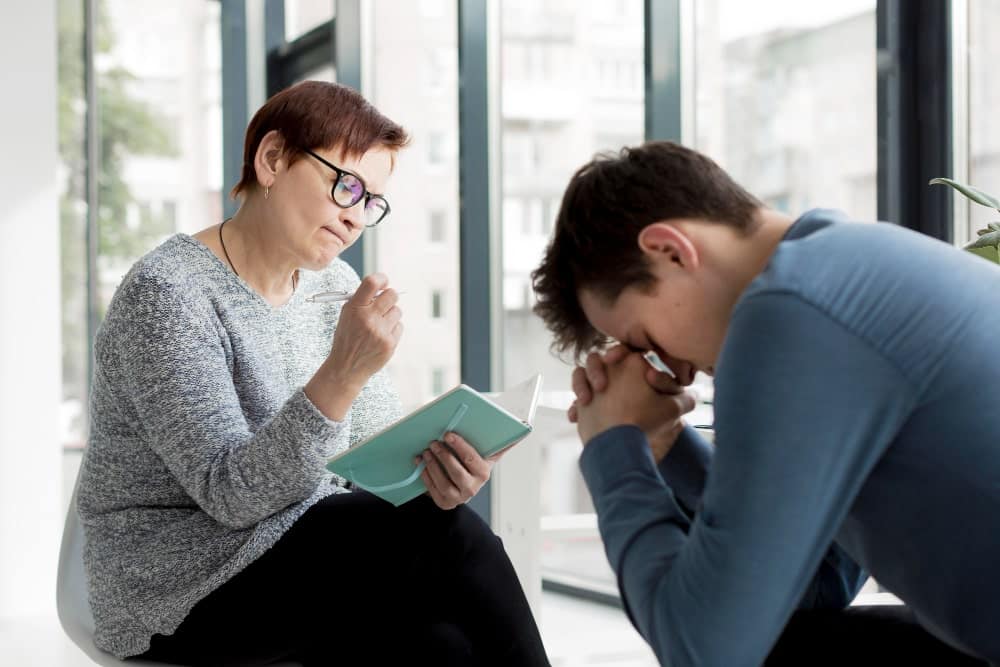Learn How to Treat Depression Without Medicine: Depression Counselling
Depression is an affective disorder that can make it hard for you to enjoy your day-to-day activities. It often begins when the person is inactive and unable to follow the routines. Depression is usually due to faulty thought processes, and your relationship with others as an individual is a prime indicator of Depression. Unresolved issues and unconscious feelings such as suppressed emotions, unresolved conflicts, past traumas, and negative self-beliefs can also contribute to the onset or maintenance of depressive symptoms. In most cases, individuals take the medication to cure without Depression counselling or therapy sessions from a Psychologist.
Role of Depression Counselling:
The role of Depression Counselling or Therapy is effective in treating Depression. The counsellor or therapist helps the client regain confidence and enhance self-esteem. A counsellor or psychologist helps them resume their daily chores in the desired manner. Depression is often due to faulty thought processes. The individual learns to alter maladaptive thought patterns and perceptions in therapeutic sessions. A variety of therapies treat such issues. While treating Depression in most cases, Psychologists prefer triangulation of the therapy techniques rather than just implementing one method.
Depression Counselling Techniques to treat Depression:
Cognitive Behavioural Therapy
CBT is a form of talk therapy with two components: The Cognitive and the Behavioural. The benefits of CBT might last longer. Depression tends to occur due to faulty behaviour patterns and dysfunctional thoughts. Counselling can do wonders to replace dysfunctional thoughts with corrective ones. During counselling, the counsellor will probe and help you understand your perceptions and which is workable in a particular situation. During the session, you evaluate how your daily routine and activities impact your mood. The Depression Counsellor will help you develop a plan of action by engaging in various activities. The Depression Counsellor will help you find goals and will challenge your misconceptions. The main aim of any Depression Counsellor is to make the client self-reliant and to find practical solutions to problems through depression counselling.
Interpersonal Therapy
Your relationship with others as an individual is a prime indicator of Depression. In many cases, resolving the interpersonal relationship can help you recover from depressive symptoms. The primary basis is the difficulties and changes in relationships the person is experiencing. Clients learn to improve communication within those relationships or to change their expectations about those relationships. It is time-limited, and a course of 12 to 20 sessions is necessary for the acute treatment of Depression. Depression counselling technique like Interpersonal Therapy helps us to understand not just the causes of Depression but also why it persists.
Psychodynamic Therapy
It is one of the most traditional approaches to Depression counselling. Many times, we are unaware of emotions that might create a problem. Adult behaviours and perceptions in intimate relationships shape interactions and the associated feelings. The fantasies of meaningful connections with others, usually with parents and siblings. Children struggle with such opposing needs and feelings as closeness, separation, love, hate, and guilt over forbidden sexual or aggressive wishes.
Intrapsychic Defences:
The strategies that develop to contain unacceptable urges and impulses are called intrapsychic defences. These defences are set in childhood and have irrational conclusions based on childhood reasoning. They are well established by Adulthood and operate automatically and unconsciously. These also clarify positive and negative internalized concepts of self and others.
Psychodynamic Therapy can be very intense and open-ended, as the client can clearly state what the person is feeling. Psychodynamic Therapy is critical when the individual employs a maladaptive coping strategy for a long time. In most cases, triangulation of the therapy techniques can be applied rather than just implementing one particular method. Thus, each type of Therapy has its unique way of treating Depression. Medicines have their own set of side effects, as well as can be addictive, and the chances of relapse are at maximum, too. Nausea, drowsiness, weight gain, and sexual dysfunction are common side effects of medication.
Levels of Depression:
So, it is preferable in case of low and moderate levels of Depression to indulge in an active lifestyle to overcome such feelings, like getting into a disciplined routine and having SMART GOALS, especially these goals should be short-term, taking care of your physical health by going for a walk or gym, eating a healthy diet, getting proper sleep, enjoying time with friends and family, challenging your negative thoughts, and trying something new or different.
The medicine has been put into effect when Depression inhibits the person’s holistic growth. During that time, counselling works as a supportive measure. The length of time it takes for counselling to work in Depression depends upon the individual and the severity of their symptoms. Some people may experience improvements within a few sessions, while others may require longer-term Therapy. Counselling aims to help individuals learn new coping skills and make positive changes in their thinking patterns and behaviours, which can take time to develop and become a habit.
Psychologist:
It is crucial to work with a qualified and experienced Psychologist or Therapist to determine the best depression counselling treatment course and set realistic expectations for the length of time it may take to see improvement. Thus, taking depression counselling from a psychologist along with medication can help you to increase your motivation level and also help you overcome or at least limit your distorted thinking. Hence, it becomes necessary for the clients to treat Depression effectively. An amalgamation of both medicines and counselling is required. If symptoms constantly exist for 21 days, a person should seek professional help for Depression Counselling.
Dr Nisha Khanna is a senior consultant counselling psychologist among the top psychologists in Delhi, NCR, and India. She deals in Depression Counselling. She provides online, telephone, and face-to-face Depression counselling services. If you are in Delhi, India, or any other part of the World, you can approach us through any of these mediums. For details, visit Bye Tense or call us at +91–9818211474




Follow Us